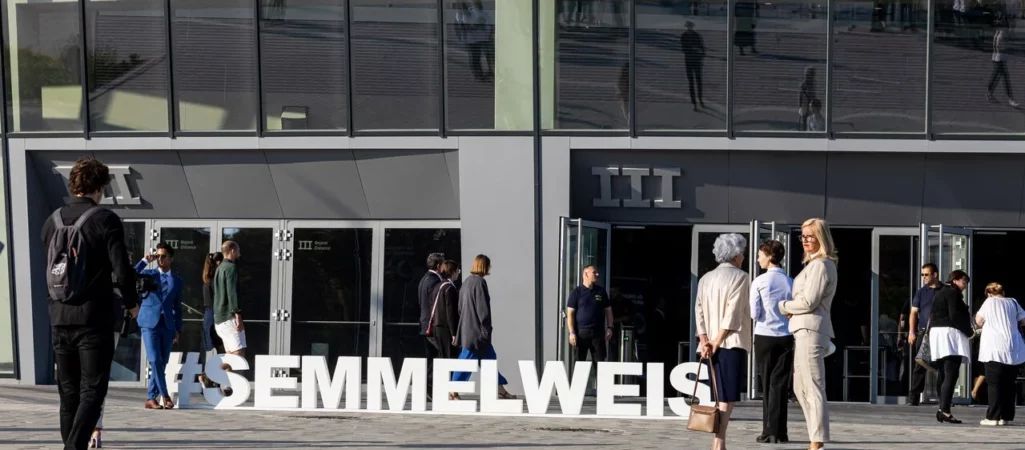Hungary among the best countries to work and study for international students

Am I allowed to work while studying abroad? This might be one of the most frequent questions that students ask before they take the road to study in a foreign country. Erudera.com collected the most information.
There are many countries that attract numbers of international students every year and allow them to work during their studies, though the rules and working hours for students are different in each country. Data indicate that more than 6 million tertiary students went to study abroad in 2019, Erudera.com reports.
In most cases, international students wishing to work while studying in a foreign country must obtain a work permit. The tables below show the largest countries where international students are allowed to work during their studies. HERE you may read their full report last updated on 4 October.
Here are the European results
Europe is home to some of the best and oldest universities in the world. In addition to offering quality education, these universities have proven to help with career preparation. According to Eurostat, 1.3 million international students were pursuing tertiary education in the EU during 2018.
| Country | Are students allowed to work? | If yes, do they need a work permit? |
|---|---|---|
| Andorra | Yes, part-time | All foreign nationals should obtain a work permit to work in Andorra |
| Austria | Yes, up to 20 hours per week | No, they don’t need to apply for a work permit |
| Belgium | Yes, up to 20 hours per week. There are no restrictive hours during Christmas, spring and summer break, | International students usually need to have a work permit |
| Bosnia & Herzegovina | Yes, part-time | They need a work permit in advance |
| Bulgaria | Yes, 20 hours per week during their studies and holidays too | They have to apply for a work permit after graduation |
| Croatia | Yes, part-time only | Yes, they need a work permit |
| Cyprus | Yes, up to 20 hours per week | They need a student permit from the Immigration Authorities |
| Czechia | Up to 30 days within a calendar year | A student must be enrolled in a degree programme accredited by the Ministry of Education to be eligible to work |
| Denmark | Yes, 20 hours per week and full-time during summer break | They need a work permit or an establishment card when applying for work after graduation |
| Estonia | Yes, there is no limitation on the number of working hours for students | They need the work permit after graduation if they want to stay in the country |
| Finland | Yes, up to 30 hours per week | |
| France | Yes, up to 964 hours per year | If the number of working hours exceeds 964 per year, the employer should apply for a temporary work permit on the Ministry of the Interior website on behalf of the student |
| Georgia | Yes, maximum of 20 hours per week | They need a work permit from Georgian government |
| Germany | Yes, full-time job for 120 days or part-time for 240 half days | They can work without a work permit |
| Greece | Yes, 20 hours per week during the semester and 40 hours per week during vacations | |
| Hungary | Yes, up to 24 hours a week during the semester | Non-EU international students will need to obtain a permit. |
| Iceland | Non-EEA/EFTA student can work up to 15 hours per week during the academic year | Yes they should apply for a work permit |
| Ireland | Yes, up to 20 hours per week during their studies and full-time during vacations | Students in full-time studies do not need a work permit in Ireland |
| Italy | Yes, 20 hours per week | |
| Latvia | Yes, up to 20 hours per week during the semester and 40 hours a week during the semester break | No, they don’t thave to apply for a work permit while on student visa |
| Liechtenstein | Students who live in Liechtenstein with a short-term residence permit are allowed to work up to 35% during the semester and 100% during semester breaks. | Yes, they need a working permit from Ausländer- und Passamt |
| Lithuania | Yes, up to 40 hours per week | They need to have a temporary residence permit to be able to work |
| Luxembourg | Yes, 346 hours during the academic year | |
| Malta | Yes, a maximum of 20 hours per week | All foreign nationals need a work permit in Malta |
| The Netherlands | Yes, up to 16 hours per week and full-time in summer months | They need a work permit |
| Norway | Yes, up to 20 hours per week | |
| Poland | 20 hours per week during studies40 hours per week during holidays | No, they don’t need a work permit |
| Portugal | Yes, 20 hours per week during their studies and full-time during vacations | |
| Romania | 20 hours per week | They don’t need a work permit. Those with a work permit can work more hours in the country |
| Russia | Yes, up to 20 hours per week | They need a work permit if the job is outside university |
| Slovenia | Yes, temporary and part-time work under “Student Work” | They need a contract from Student Services employement agency |
| Spain | 20 hours per week and full-time during the semester breaks | They need work authorization |
| Sweden | At least 40 hours per week during their studies, however they are allowed to work as many hours as they want | |
| Switzerland | Yes, 15 hours per week during term-time, full-time during summer breaks | They should apply for a work permit after graduation |
| Turkey | Yes, 30 to 35 hours per week | They need a work permit |
| Ukraine | No, it is considered illegal to work while studying | |
| United Kingdom | Yes, up to 20 hours per week during the semester |
Source: erudera.com




Our Grand-daughter, getting a very FAIR deal doing a postgraduate degree in Australia, that allows her to work “part time.”
ANNOYS me with reports like this article that FAILS giving the BIG Global Picture – in what the message of the article is SUPPOSED to PAINT – in this case to Students.
Whatever your degree of studies or aspirations in life are – our Grand-daughter tells us Australia very short of teachers and the salary they appear to get bottom tier – excellent, compared to what is going on in Education – teaching in Hungary.